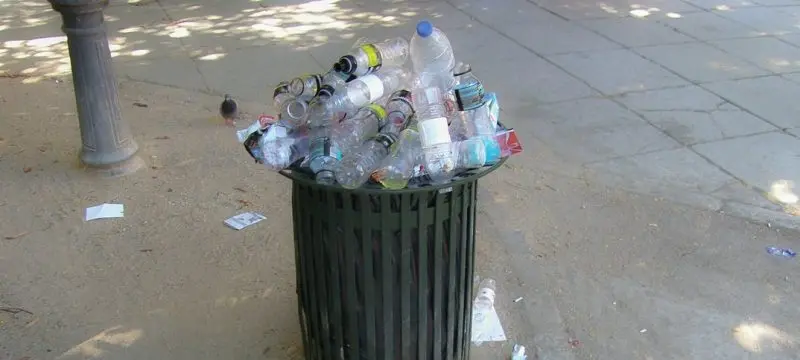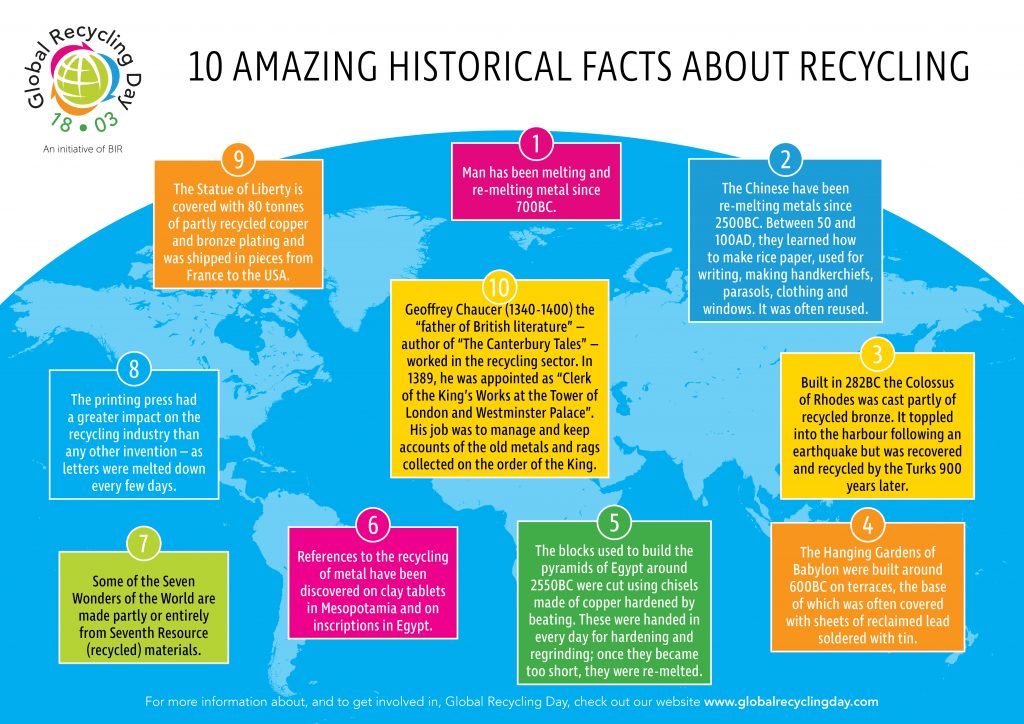Recycling History
Recycling is a much older concept than we give it credit for. Archaeological studies have found that during periods when natural resources were sparse, waste dumps show less household waste, giving many reason to believe that they were recycling and reusing products in the absence of virgin materials.
In fact, finding recycled or reusable resources has always held a premium in human history. Whether it’s the “dustmen” of Victorian era England, who went around and collected coal fires to help with brick making, or the development of shoddy and mungo rags combining used materials with sparse amounts of virgin wool, recycling has played a key part in our relationship with natural resources.
Additionally, in modern history, wartime has always been a period of buckling down and recycling. Most resources in wartime go to, well, the war. So citizens typically need to find innovative ways of reusing what materials they have for what they need. Additionally, scrap metal and second hand materials is increasingly important to help create a bank of resources for armies to turn into utilities. Examples of this are from World War II with the National Salvage Campaign in Britain and the Salvage for Victory Campaign stateside.
In our modern times, nationalism has been replaced with environmentalism and the urge to help preserve our sparse resources by reusing goods and reducing waste. So, if pre-historic humans can figure out how to recycle, so can we.

What can we do
Every year, the Earth yields billions of tons of natural resources and at some point, in the not too distant future, it will run out.
That’s why we must think again about what we throw away – seeing not waste, but opportunity.
The last decade has been the hottest on record, and we are now facing a climate emergency of unparalleled proportions. If we don’t make significant and rapid changes, we will see continued rising global temperatures, the melting of icecaps, continents on fire and rapid deforestation.
This directly affects humanity with increased poverty, immigration from displaced communities, job losses, waste mountains and natural habitats disappearing. We have the power to make lasting changes to combat this, and with recycling being recognized in the UN’s Sustainable Development Goals 2030, we are already seeing many individuals, governments and organisations taking direct action to support the global green agenda.
Recycling is a key part of the circular economy, helping to protect our natural resources. Each year the ‘Seventh Resource’ (recyclables) saves over 700 million tonnes in CO2 emissions and this is projected to increase to 1 billion tons by 2030. There is no doubt recycling is on the front line in the war to save the future of our planet and humanity.
Global Recycling Day was created in 2018 to help recognise, and celebrate, the importance recycling plays in preserving our precious primary resources and securing the future of our planet. It is a day for the world to come together and put the planet first.
The mission of Global Recycling Day, as set out by the Global Recycling Foundation, is twofold:
1. To tell world leaders that recycling is simply too important not to be a global issue, and that a common, joined up approach to recycling is urgently needed.
2. To ask people across the planet to think resource, not waste, when it comes to the goods around us – until this happens, we simply won’t award recycled goods the true value and repurpose they deserve.

Hygiene Vision Europe Environmental Policy
At HygieneVision-Europe Ltd we realize that environmental issues are increasingly important. We ensure our manufacturing, operations and products do the least possible harm to the environment.
HygieneVision-Europe Ltd is committed to protecting the environment by ensuring that we are complying with all relevant UK and EU legislation and regulatory provisions, and to meeting appropriate national standards.
HygieneVision-Europe Ltd is committed to manufacturing and supplying products and hygiene systems which pose the least risk to the environment, both in production processes and in customers’ premises.
